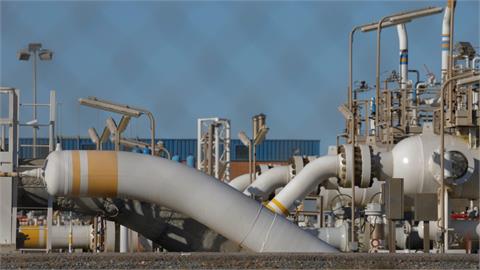The Organization of Petroleum Exporting Countries (OPEC) saved oil prices from "total collapse," but it was U.S. shale oil that prevented the global oil market from "major energy chaos," according to OPEC Secretary General Mohammad Barkindo on Wednesday.
By Ovunc Kutlu
The Organization of Petroleum Exporting Countries (OPEC) saved oil prices from "total collapse," but it was U.S. shale oil that prevented the global oil market from "major energy chaos," according to OPEC Secretary General Mohammad Barkindo on Wednesday. OPEC and U.S. shale producers have been regarded as arch-rivals since mid-2014 when crude prices started plummeting from $115 per barrel.
At the time, Saudi Arabia Energy Minister Ali Al-Naimi spearheaded OPEC in its refusal to cut the cartel's oil production to drive the high-cost shale oil producers out of the market. After oil prices collapsed below $30 a barrel in January 2016, the cartel joined forced with Russia in December that year to collectively cut their production levels to trim the glut of supply in the market that resulted in price increases.
"OPEC has been doing a great service ... The decisions that OPEC took, together with our non-OPEC partners, literally rescued this industry from total collapse," Barkindo told CNBC on Wednesday at a conference in Riyadh.
The price collapse caused the American oil sector to lose around $250 billion in investments. However, with the OPEC and Russia pact, prices gradually increased and U.S. shale oil producers were able to get back to business. Barkindo explained that no party was insulated against the impact of this collapse, in particular during the longest cycle when prices crashed by over 80 percent at one point.
More than 100 U.S. companies filed for bankruptcy with all the negative consequences on the industry at a time when the supply and demand balance was in a period of disequilibrium that had never been witnessed before, he said. Although U.S. shale oil companies adapted to a low-price environment by adopting new technologies and cutting costs, they also benefitted from the rebound in oil prices.
"You can ask the producers in the shale basins in the U.S. whether they have benefitted from the actions we have taken over the years," Barkindo said.
What U.S. shale did, on the other hand, was to provide supply to the global market when it was most needed, since long-time oil producers like OPEC members and Russia saw significant declines in their production levels. "Without this shale revolution we've seen in the U.S., the world would have been in major, major energy chaos," Barkindo contended.
"Thanks to the shale revolution in the U.S. we have been able to maintain these supplies and meet current demand. What is needed now is for us to continue this relationship with the non-OPEC producers in order to sustain the relative, and fragile, market stability that we have been able to achieve," he said.
The rivalry between OPEC and U.S. shale came to a rapprochement in March 2017 when Barkindo confirmed that he held talks with some American shale oil companies in Houston, Texas where the global energy conference CERAWeek 2017 was held.
The secretary general denied competition then by saying "We, in OPEC, never had a war with the U.S. shale," and added American shale producers shared their experiences of how to lower their costs and increase efficiency. With cost-cutting measures and higher efficiency, the rise in oil supply from American producers reached such an extent that it recently made the U.S. the largest crude oil producer in the world in November 2018.
The world again saw a glut of oil supply and lower prices in 2018. In response, OPEC and Russia made a second deal on Dec. 7 last year when they decided to cut their supplies for the first six months of 2019. If oversupply remains in the global oil market on top of rising production from U.S. shale, the risk of OPEC and non-OPEC cutting their supplies further would intensify for the second half of 2019.
(Anadolu Agency)
.jpg)



